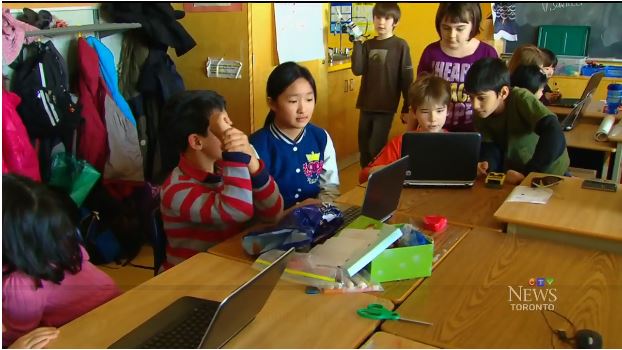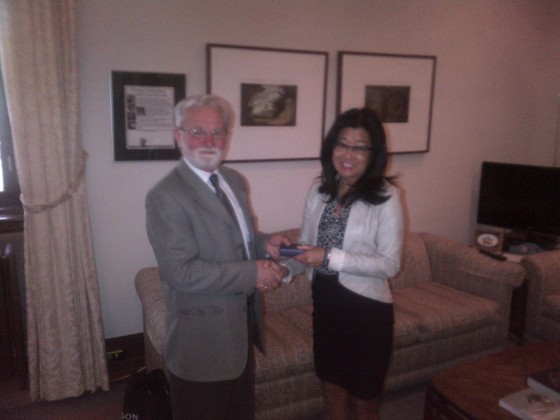MEDIA RELEASE
For Immediate Release
April 9, 2014
Gaining input on the educational needs of the future CALGARY – The advancement of Canada’s and Alberta’s education curriculum was up for discussion yesterday at a business roundtable led by Alberta’s Minister of Education, Jeff Johnson. The Calgary Chamber facilitated the discussion alongside the Calgary Board of Education (CBE), C21 Canada (Canadians for 21st Century Learning & Innovation), and the Council for Ministers of Education Canada in an effort to gain first-hand input on learning and innovation needs for the 21st century. Minister Johnson is the current chair of the Council of Ministers of Education Canada and has been actively soliciting the views of education and business leaders and other stakeholders on Canada’s national learning and skills priorities. The roundtable discussion sought input on how Canada can best prepare learners for life, work and further education. The preparation of young people is a shared responsibility and educators and policy makers need to hear from all voices on how to improve the current system.
“Yesterday’s discussion highlighted the importance of collaboration when it comes to the future of education in Alberta and across Canada,” says Calgary Chamber Board Chair Leah Lawrence. “A diversity of voices and perspectives will help strengthen our education system and ensure that all our children are equipped with the 21st century skills and competencies they need to reach their full potential.” “Under Minister Johnson’s leadership Alberta is ensuring its education system is relevant to today’s learners”, said John Kershaw, President of C21 Canada. “We are hoping Minister Johnson will have the same success in moving the Canadian learning and skills agenda forward in his role as Chair of CMEC.” The delegates to the meeting were informed that both Alberta’s and Canada’s educational systems as a whole do many things well, as Canadian students, and Alberta learners in particular, are in the top rank of international comparisons. However the Minister was advised that in today’s knowledge era the business community is seeking people with competencies such as creativity, critical thinking, collaboration, entrepreneurial thinking, communication and digital literacy.
-30-
For more information contact James Callsen at jcallsen@calgarychamber.com 403 473 0696





